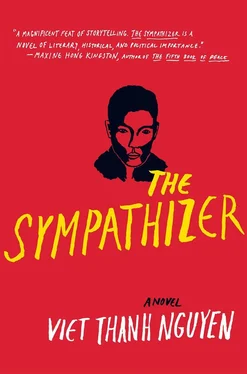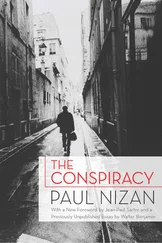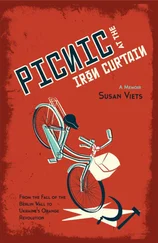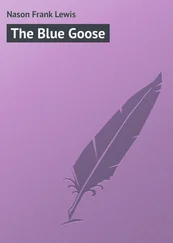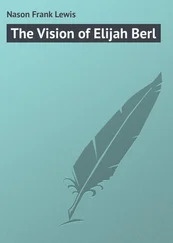Life’s a suicide mission.
That’s very philosophical of you, I said. It doesn’t change the fact that you’re crazy.
He laughed with genuine humor, such a rare occasion ever since Saigon I was taken aback. For only the second time since I had known him, he embarked on a speech that was, for him, an epic. What’s crazy is living when there’s no reason to live, he said. What am I living for? A life in our apartment? That’s not a home. It’s a jail cell without bars. All of us — we’re all in jail cells without bars. We’re not men anymore. Not after the Americans fucked us twice and made our wives and kids watch. First the Americans said we’ll save your yellow skins. Just do what we say. Fight our way, take our money, give us your women, then you’ll be free. Things didn’t work out that way, did they? Then, after fucking us, they rescued us. They just didn’t tell us they’d cut off our balls and cut out our tongues along the way. But you know what? If we were real men, we wouldn’t have let them do that.
Usually Bon used words like a sniper, but this was a spray of machine-gun fire that silenced me for several moments. Then I said, You don’t give these guys enough credit for what they did, for what they faced. Though they were my enemies, I understood their soldiers’ hearts, beating with the belief that they had fought bravely. You’re being too hard on them.
He laughed again, this time without humor. I’m hard on myself. Don’t call me a man or a soldier, either. Call the guys who stayed behind men and soldiers. The men in my company. Man. All dead or in prison, but at least they know they’re men. They’re so dangerous it takes other men with guns to keep them locked up. Here, no one’s frightened of us. The only people we scare are our wives and kids. And ourselves. I know these guys. I sell them liquor. I hear their stories. They come home from work, yell at their wives and kids, beat them once in a while just to show that they’re men. Only they’re not. A man protects his wife and children. A man isn’t afraid to die for them, his country, his buddies. He doesn’t live to see them all die before him. But that’s what I’ve done.
You retreated, that’s all, I said, putting my hand on his shoulder. He shrugged it off. I had never seen him speak about his pain so bluntly before. I wanted to comfort him and it hurt me that he would not let me. You had to save your family. That doesn’t make you less of a man or a soldier. You are a soldier, so think like one. Is it better to go on this suicide mission and not come back, or is it better to go with the next wave that’s actually got a chance?
He spat and ground out his cigarette against the heel of his boot, then buried it under a mound of dirt. That’s what most of these guys are saying. They’re losers and losers always have excuses. They dress up, talk tough, play soldier. But how many are really going back home to fight? The General asked for volunteers. He got three. The rest of them hide behind their wives and kids, the same wives and kids they beat because they can’t stand hiding behind them. Give a coward a second chance, he’ll just run again. So it is with most of these guys. They’re bluffing.
You cynical bastard, I cried. What are you dying for then?
What am I dying for? he cried back. I’m dying because this world I’m living in isn’t worth dying for! If something is worth dying for, then you’ve got a reason to live.
And to this, I had nothing to say. It was true, even for this small detachment of heroes or perhaps fools. Whatever they were, they now had something to live for if not die for. They had eagerly shed the funereal clothes of their mediocre civilian lives, understanding the allure of tailored tiger stripe fatigues with dashing scarves of yellow, white, or red around their necks, a military splendor akin to the costumes of superheroes. But, like superheroes, they would not want to keep themselves a secret for long. How could you be a superhero if no one knew you existed?
Rumors had already spread about them. Even before the desert assembly, during that night when Sonny had admitted his failure and yet still won, he had asked me about these mysterious men. The wheels of our conversation had stopped spinning, the black cat was gloating over my defeat, and in the vodka-infused silence Sonny raised the reports of a secret army preparing for a secret invasion. I replied that I had not heard of any such thing, to which he said, Don’t play the innocent. You’re the General’s man.
If I were his man, I said, more reason not to tell a communist.
Who said I’m a communist?
I pretended to be surprised. You’re not a communist?
If I were, would I tell you?
That was the subversive’s dilemma. Rather than flaunt ourselves in the sexually dubious costumes of superheroes, we hid beneath cloaks of invisibility, here just as in Saigon. There, when I attended clandestine meetings with other subversives, conducted in the fusty cellars of safe houses, sitting on crates of black market hand grenades manufactured in the USA, I donned a clammy cotton hood that revealed only my eyes. Lit by candlelight or oil lamp, we knew one another only by the peculiarity of our aliases, by the shape of our bodies, by the sound of our voices, by the whites of our eyes. Now, watching Ms. Mori recline under Sonny’s arm, I was sure my ever-absorbent eyes were no longer white but bloodshot from the wine, vodka, and tobacco. Our lungs had achieved smoky equilibrium with the stale air, while on the coffee table the ashtray silently suffered its usual indignity, mouth crammed full of butts and bitter ash. I dropped what remained of my cigarette into the well of the wine bottle, where it drowned in the remaining liquid with a faint, reproachful hiss. The war’s over, Ms. Mori said. Don’t they know that? I wanted to say something profound as I stood up to say good night. I wanted to impress Ms. Mori with the intellect she could never have again. Wars never die, I said. They just go to sleep.
Is that true for old soldiers, too? she asked, not looking impressed. Of course it’s true, Sonny said. If they didn’t go to sleep, how else would they dream? I almost answered before I realized it was a rhetorical question.
Ms. Mori offered me her cheek to kiss and Sonny offered me his hand to shake. He showed me the door and I slid home through the cool sheets of night and into my own bed, Bon asleep and hovering above me in his rack. I closed my eyes and, after a spell of darkness, floated on my mattress across a black river to the foreign country that needed no passport to visit. Of its many gnomic features and shady denizens I now recall only one, my mind wiped clean except for this fatal fingerprint, an ancient kapok tree that was my final resting place and on whose arthritic bark I laid my cheek. I was almost asleep within my sleep when I gradually understood that the knot of gnarled wood on which my ear rested was actually an ear itself, curled and stiff, the wax of its auditory history encrusted in the green moss of its twisted canal. Half of the kapok tree towered above me, half was invisible below me in the rooted earth, and when I looked up I saw not just one ear but many ears swelling from the bark of its thick trunk, hundreds of ears listening and having listened to things I could not hear, the sight of those ears so horrible it hurled me back into the black river. I woke drenched and gasping, clutching the sides of my head. Only after I kicked off the damp sheets and looked under the pillow could I lie down again, trembling. My heart still beat with the force of a savage drummer, but at least my bed was not littered with amputated ears.
Sometimes the work of a subversive is purposeful, but sometimes, I confess, it is accidental. In retrospect, perhaps my questioning of Sonny’s courage pushed him to write the headline that I saw two weeks after the field maneuvers, “Move On, War Over.” I saw it on the General’s desk in his war room at the liquor store, fixed squarely on the writing pad and weighed down by a stapler. The sentiments of the headline might be hailed by some, but certainly not by the General. Beneath that headline was a photograph of a rally staged by the Fraternity at a Westminster park, with ranks and files of grim veterans in paramilitary uniforms of brown shirts and red berets. In another photo, civilians in the cast-off couture of refugees waved signs and clutched banners with the telegraphic messages of political protests. HO CHI MINH = HITLER! FREEDOM FOR OUR PEOPLE! THANK YOU, AMERICA! To the degree that the article might sow doubt in the hearts of exiles about continuing the war, and create divisions among exile factions, I knew that my provocation of Sonny had had an unintentional, but desirable, effect.
Читать дальше
